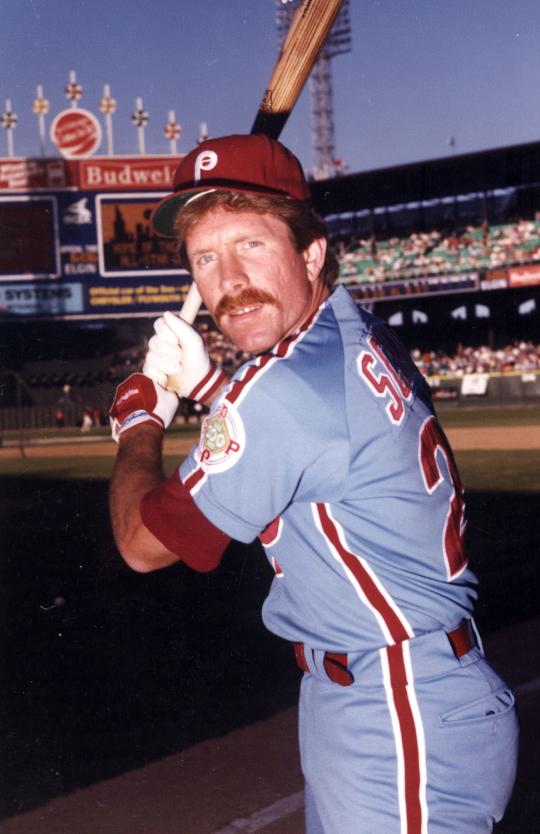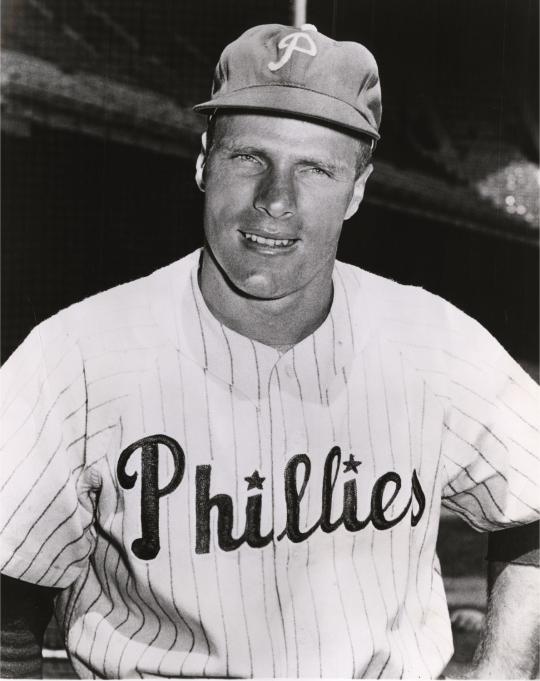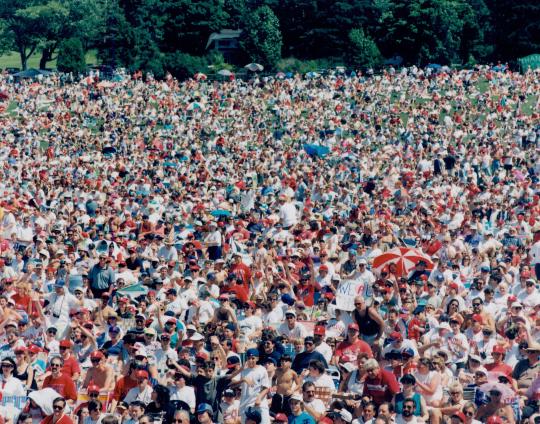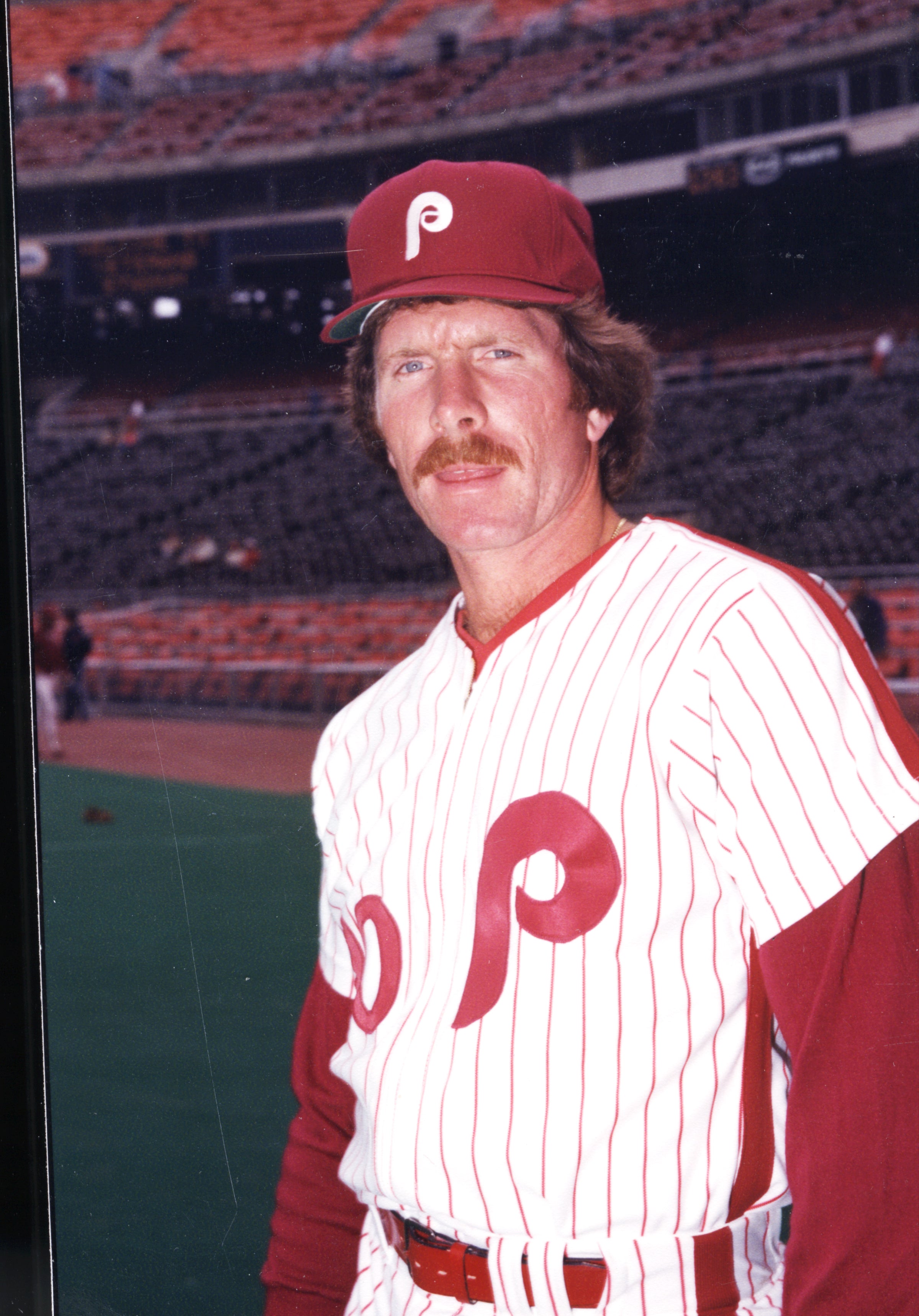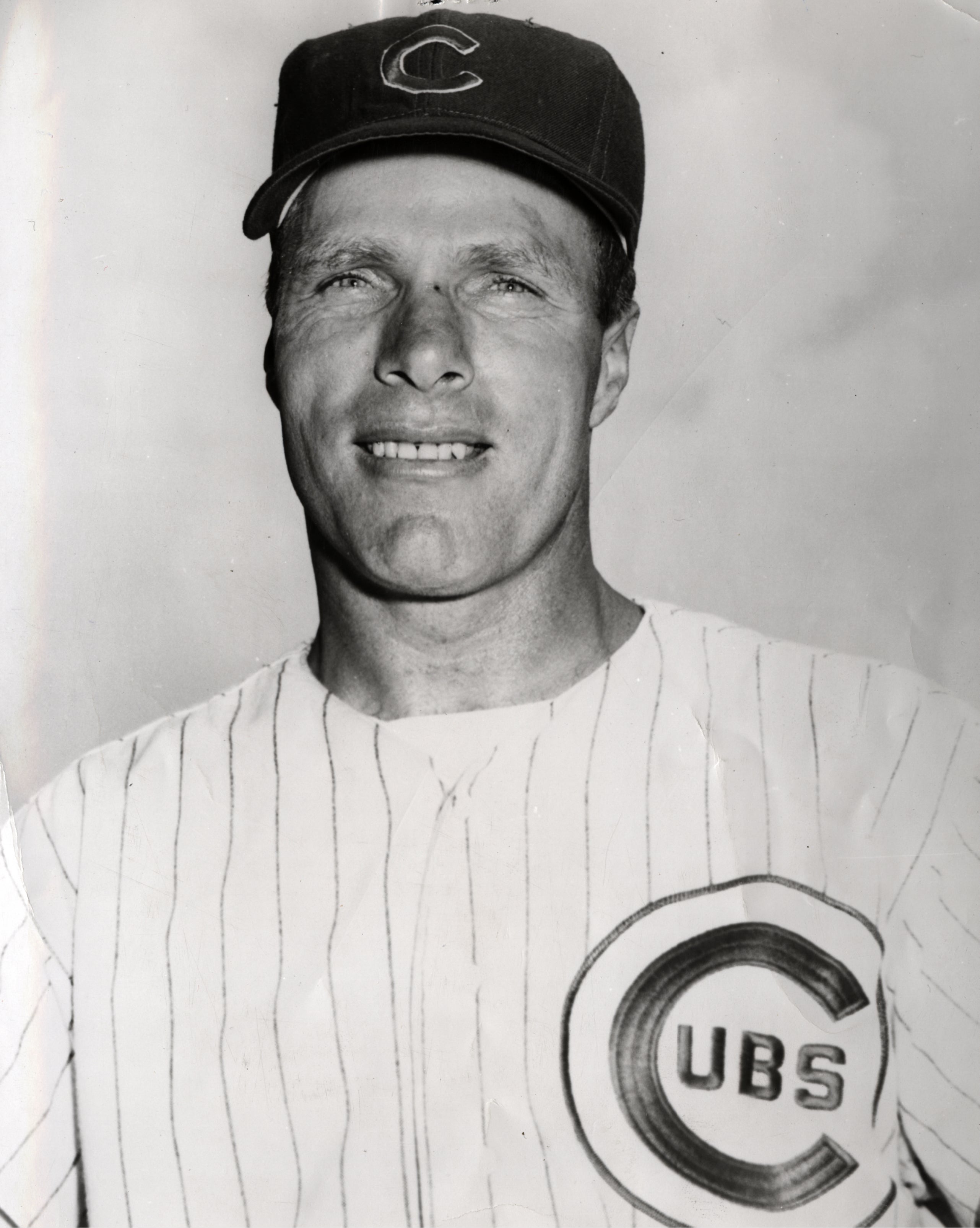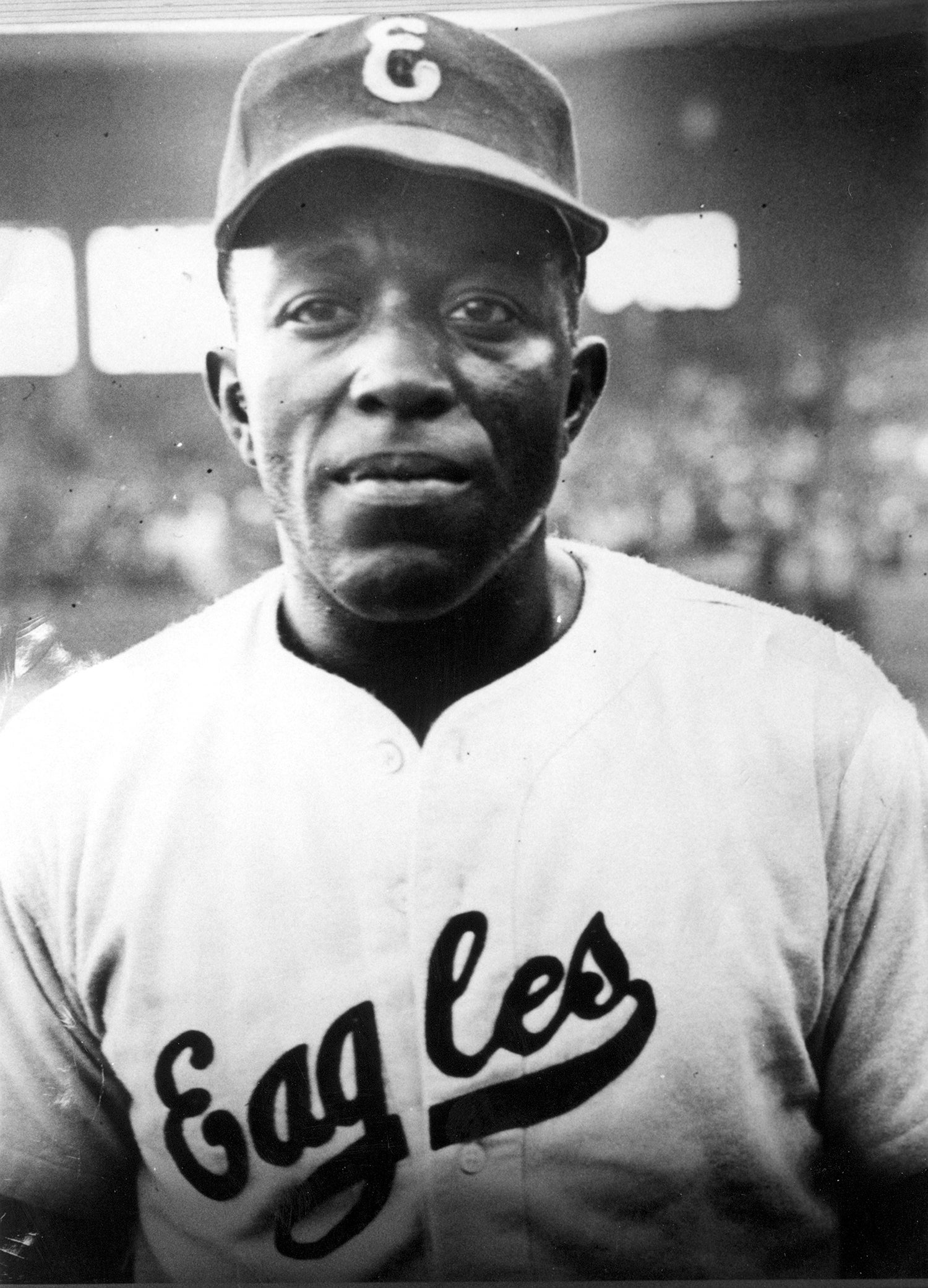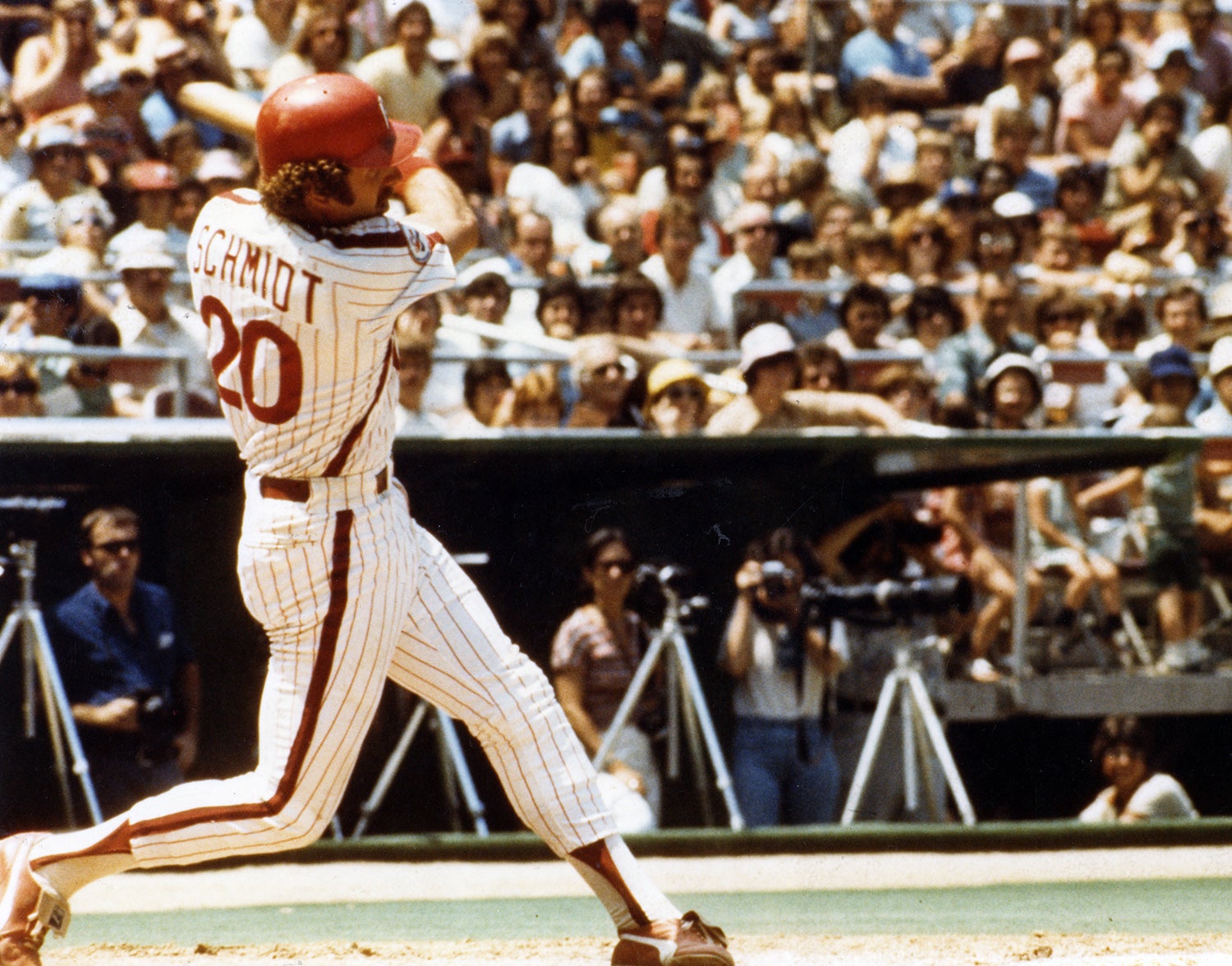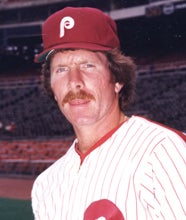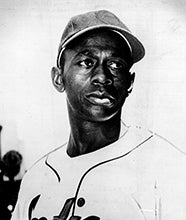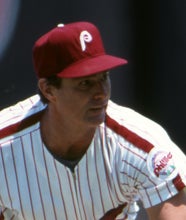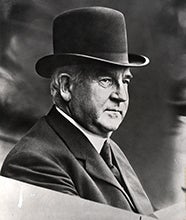- Home
- Our Stories
- Ashburn, Schmidt, Day, Hulbert, Willis inducted as Class of 1995
Ashburn, Schmidt, Day, Hulbert, Willis inducted as Class of 1995
For the second consecutive summer, Philadelphia Phillies faithful gathered in Cooperstown to celebrate and enshrine two of their own living legends into the Baseball Hall of Fame.
After 1994 saw upward of 15,000 fans flock to the Hall of Fame to witness former Phillies’ pitcher Steve Carlton’s induction, Philadelphia fans once again showed up in full force to see Mike Schmidt and Richie Ashburn – the year’s two living inductees – enshrined.
An estimated 40,000 fans were present for the ceremony.
Ashburn and Schmidt, along with Leon Day, William Hulbert and Vic Willis were inducted on July 30, 1995. The diverse group of inductees included two pitchers, an outfielder, a third baseman and a franchise owner.
Schmidt, a 12-time All-Star and six-time Silver Slugger Award winner, was widely revered as not only the premier third baseman of his era, but also as one of the best of all time.
Hall of Fame Membership
There is no simpler, and more essential, way to demonstrate your support than to sign on as a Museum Member.
The power-hitting Schmidt hit more than 30 home runs in 13 of his 18 Major League seasons – reaching 40 three times – to finish with a total of 548.
“There are things as a coach you can teach, but natural ability like the raw power (Schmidt) had is a rare gift you see maybe once in a lifetime,” Bob Wren, Schmidt’s Ohio University coach said in 1995.
But Schmidt wasn’t just known for his offensive prowess. A 10-time Gold Glove Award winner, Schmidt had a .961 career fielding percentage and won the National League MVP Award three times. He spent his entire career with the Phillies, and led the team to its first-ever World Series Championship in 1980.
“I left Dayton, Ohio, with two bad knees and a dream of becoming a baseball player,” Schmidt said in a press conference after he retired in 1989, referring to his hometown. “Thank God it came true.”
More than a decade before Schmidt began his career at the hot corner for the Phillies, Ashburn roamed center field for Philadelphia. Known for his speed, Don Richard “Richie” Ashburn was a career .308 hitter who spent 12 years with the Phillies before spending two years with the Chicago Cubs and his final season with the New York Mets.
Ashburn was part of the “Whiz Kids” National League Champion team in 1950. The five-time All-Star was second on the team with a .303 batting average that year.
“Ashburn is the fastest man I’ve ever seen getting down to first base,” Brooklyn Dodgers manager Leo Durocher told the Sporting News in 1948.
“Anybody who’s faster than Ashburn isn’t running. He’s flying.”
One of the most dominant and versatile pitchers in the Negro Leagues, Leon Day commanded both his fastball and curveball with grandeur that was often compared to that of Hall of Famer Satchel Paige. He pitched for the Newark Eagles in the 1930s and ‘40s, also playing international ball in Puerto Rico, Venezuela and Canada, as well as on Army teams during World War II. He set the Negro League single-game strikeout record with 18 against the Baltimore Elite Giants in 1942.
Also an adept hitter, Day would play second base or in the outfield when he wasn’t pitching. In 1937, he hit .320 with eight home runs in 20 games. During that season, he posted a 3.05 ERA as a starting pitcher for the Eagles.
“If Satchel Paige is the Negro League icon, Leon Day is the warrior,” former teammate Max Manning said. “He’s the guy that goes out there and does his thing and does it completely.”
The other pitcher inducted in 1995 was Victor Gazaway Willis, whose overhand delivery resulted in powerful fastballs and fleeting curves. Willis played eight of his 13 seasons in the majors with the Boston Beaneaters, then spent time with the Pittsburgh Pirates before ending his career with the St. Louis Cardinals in 1910.
Willis compiled a 249-205 overall record with a 2.63 lifetime ERA.
“His ‘drop’ is so wonderful that, if anyone hits it, it is generally considered a fluke,” reported the Boston Sunday Journal, quoted in “Deadball Stars of the National League.”
William Hulbert was president of the Chicago White Stockings club and one of the founders of the National League. In his career, which was cut short when he passed away from a heart attack in 1882, he implemented many new additions to the game that remain commonplace today, including a ban on gambling in the ballpark, set ticket prices and player contracts.
“In all the history of Base Ball no man has yet appeared who possessed in combination more of the essential attributes of a leader than [Hulbert],” Albert G. Spalding wrote in his book “America’s National Game.” “He stood like a stone wall, protecting the game of Base Ball in it integrity and turning back the assaults of every foe who sought to introduce elements of dishonesty, discord or degeneration.”
Kristen Gowdy was a public relations intern in the Frank and Peggy Steele Internship Program at the National Baseball Hall of Fame and Museum

